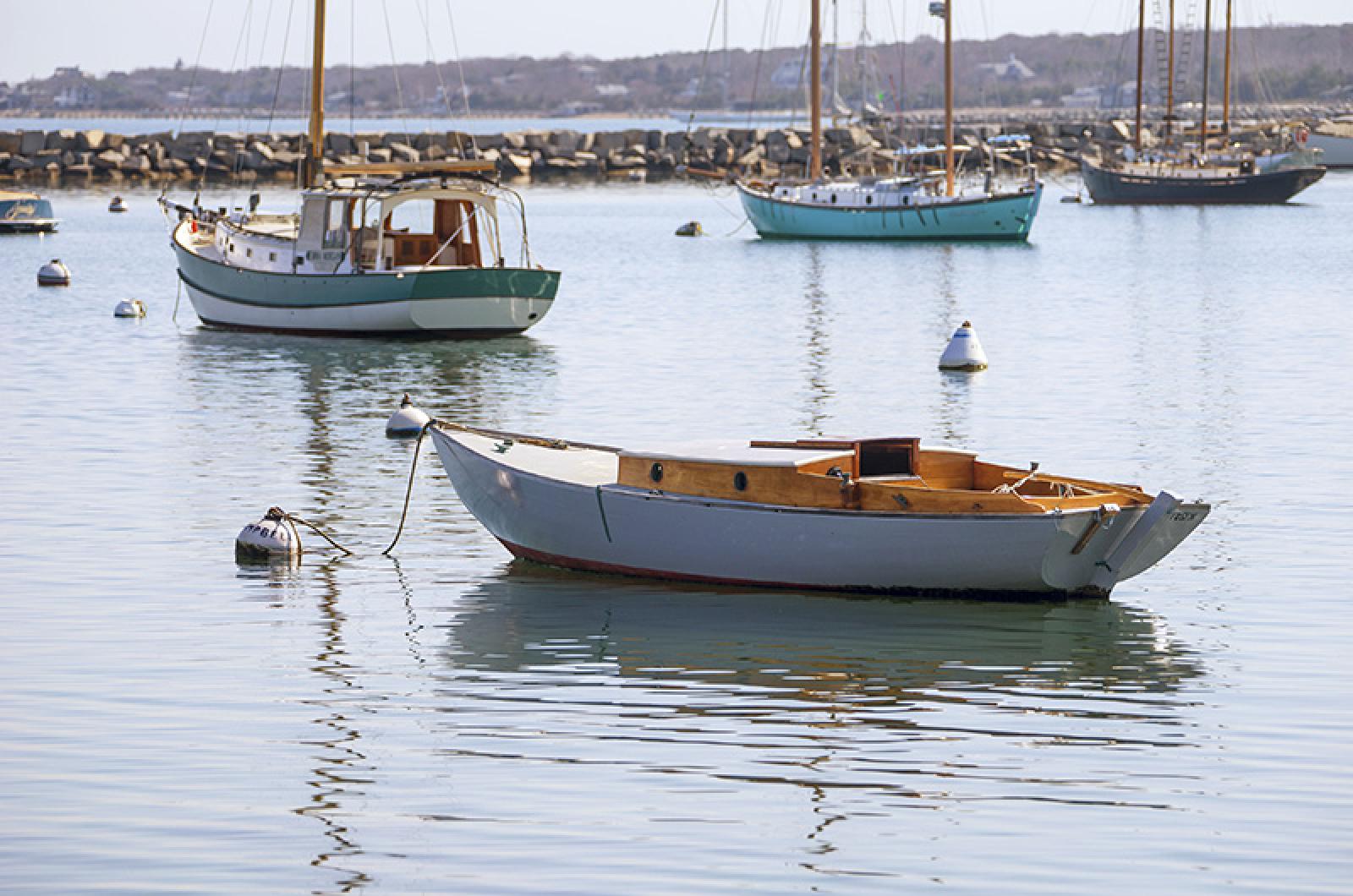Wherever two or more old-timers get together for a gam on the Vineyard the talk turns to the “good old days,” just as it does in any other place on earth. But this does not mean that the aforesaid old timers talk about the same subjects, for each town or locality has its own history and traditions, differing materially one from another. And thus it comes about that when some of these old timers of Vineyard Haven foregather in one of the spots frequented by their kind the talk will invariably turn to things pertaining to the sea and the business of caring for a fleet of stormbound vessels or the wrecking of one unfortunate enough to be cast away.
Landsmen join in these conversations, for at certain times in the town’s history practically every man was more or less interested in things afloat, and so the subject of bumboatmen is one of which no one above a certain age is ignorant.
In the beginning, whenever that may have been, bumboating consisted simply of a man pulling off to a vessel in his skiff and selling the pies and doughnuts that his wife had cooked and the mittens and socks that she had knitted. Such articles were eagerly purchased by the sailors in the days when sailing vessels made all voyages long ones.
There are reasons for believing that bumboating did not become popular around the Vineyard until the whaling industry had waned, as such Island products as knitted goods made by the housewives were used extensively by whalemen and there was not, according to common tradition, a heavy over-supply at any time.
However that may be, the trade switched to the coasting vessels and the foreign ships that put in for shelter or pilots, and the business grew to such an extent that fairly large craft were finally used for the purpose, decked vessels with cabins where the cargo of merchandise could be safely stored. The last Vineyard Haven bumboat, incidentally, was a steamer of considerable carrying capacity.
When bumboating became recognized as a business such men as engaged in it were required to obtain a license from the town. This license allowed them to handle merchandise of every description, including liquor and tobacco.
Here and there may be found today small iron-bound chests made of oak, containing six or possibly eight square compartments with a smaller, shallower compartment in the center. In rare cases there will be bottles in these compartments, for these were the bumboatmen’s liquor chests.
The small compartment was for holding the glasses, which were often made of horn, as being more lasting aboard a tossing vessel, and the same compartment served as a till where the change was kept. Such chests were fitted with peculiar, intricate locks and had a strong handle affixed to the top lid, by which they were carried. This lid was deep, taking up about one-third of the depth of the chest, and when thrown back would display the bottles to their best advantage.
So, supplied with his liquor, clothing and tobacco, the bumboatman would sail out into the harbor and go the rounds of the ships anchored there. Often he would not step over the rail, but on other occasions he would go aboard and make a lengthy stay.
This was likely to be the case if the ship was from a foreign port with a cargo of merchandise that was scarce or high in this country. Bumboatmen usually had the name of being always ready to make a penny at anything and whoever first mentioned Yankee shrewdness may have received his inspiration from association with a bumboatman, if all stories concerning this gentry are to be believed.
Their shrewdness took a form that might be seriously questioned in these days of registered weights and measures and other laws that the near-ancients happily knew nothing about.
The story is told of a bumboatman who had a shore customer, the latter having but one leg. At regular intervals the customer would appear to buy a single boot. Although he received full price for the boot, the bumboatman experienced distress at having the odd boots on hand, and at last when no other one-legged customer showed up, decided that he must sell them to a two-legged man.
Accordingly he went aboard a ship and making a trade with the master for some goods, he insisted in writing out the contract and in it was specified that in return for certain articles of cargo the ship master was to receive goods and merchandise including “two boots.” The master, who expected a pair of boots, was considerably discomfited when he received two odd boots. Just how the matter ended is never told when the tale is repeated.
Proprietor, patrons and profession all have vanished, but the tales and an occasional trace of the industry, like the liquor chests, still remain, a reminder of the “good old days” and an inspiration to the yarn spinners who recall them.
Compiled by Hilary Wall
library@mvgazette.com




Comments
Comment policy »